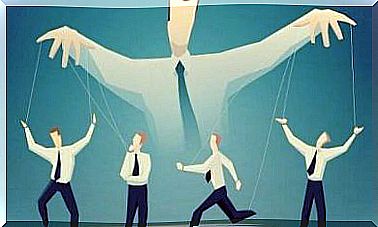Power Corrupts According To Several Studies

Many in power possess questionable ethics. However , science now claims that power both harms and corrupts. Furthermore, it does not matter what kind of power it is. In fact, in all cases, it causes negative consequences for those who have it.
Politician and thinker Lord Acton stated: “Power tends to corrupt and absolute power absolutely corrupts. ” That is precisely why in real democracies, a system of controls and balances is established that prevents, or attempts to prevent, abuse and fraud.
Too often, however, the system does not serve this purpose. Money disappears, measures are implemented that only benefit those who are affiliated with certain political parties, and agreements are entered into that allow some officials and businessmen to fill their pockets to the detriment of society. In fact, many of us know deep down that power corrupts. But why is that?

Power corrupts
Dr. Dacher Keltner, a professor of psychology at the University of Berkeley, conducted several experiments in which he found that power corrupts and is harmful. According to his findings, those who hold leadership positions over time become more impulsive. Furthermore, they lose the ability to perceive risk and put themselves in the shoes of others.
Two other researchers, Carl Galang and Sukhvinder Obhi at McMaster University in Ontario, Canada, reached similar conclusions in the research. In their view, the powerful have reduced their ability to understand the circumstances of others. In fact, they behave in such a way that other people simply do not matter to them.
This obviously turns out to be an obstacle to empathy. This is because they systematically put their interests above others.
Hybris syndrome
Hybris syndrome is a condition that is often seen in people in power. People with this disorder lose touch with reality and are overly proud of their actions. In addition, they show less empathy for others and take arrogant actions without thinking. The condition is most visible in those who have held powerful positions for a long time.
According to the English neurologist, Lord David Owen, and professor at the School of Psychiatry and Behavioral Science at Duke University, Jonathan Davidson, such a syndrome or effect is defined as: “ a disorder caused by the exercise of power, especially power associated with great success, and exercised for years without serious limits to the exercise. ”
One of the typical manifestations of this disorder is contempt for others. In fact, those affected by the condition are confident and complacent in relation to other people. Furthermore, they often show attitudes of ruthlessness and incompetence alongside total cynicism.
In today’s world , a very significant exhibitionism component is added to the above. Power figures feel that they need to build an image of themselves that resembles a celebrity. They invest a lot of time, energy and money in this. Yet, far from helping them do their job, it only increases their narcissism and selfishness.

Is it possible to escape this?
Does power generate this effect in all cases? Is the premise that power corrupts always true? In fact, data indicate that with the rise of power comes the impossibility of being aware, understanding, and meeting the needs of others in all cases.
It is extremely difficult for a person in power, especially for a long time, to escape these effects. However, there are means to prevent the disease from gaining ground. The first of these concerns effective control of power. These checks must be followed carefully.
Such controls act as a kind of “grounding” for the powerful. In fact, if their power is limited and controlled, they tend to be less self-absorbed, and their egos are also reduced.
Discretion, limitation of public exposure and handling of communications in a more serious manner will also be advisable. Furthermore, it helps to preserve the empathy of the powerful by being aware of the citizens’ opinions, as well as being fully informed about their living conditions (through news, letters, documentaries, etc.).








